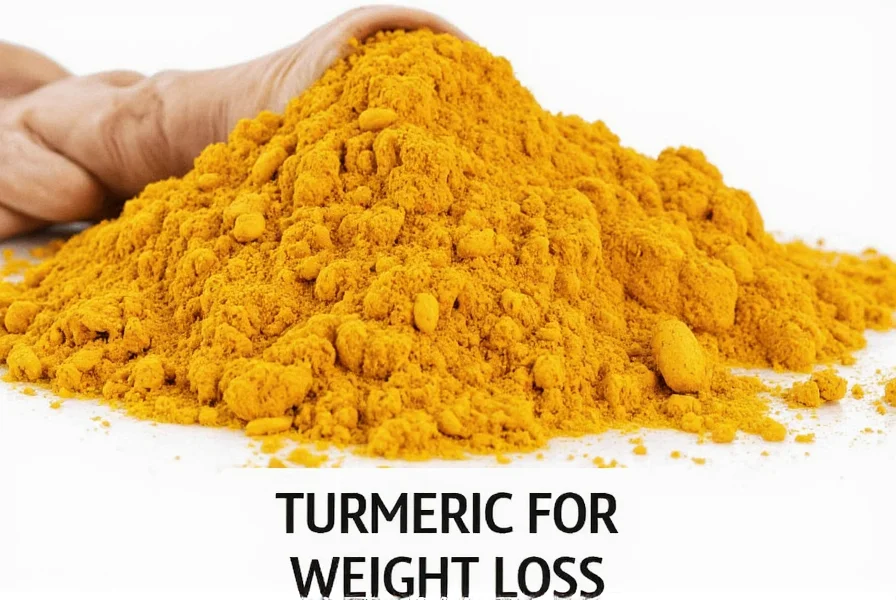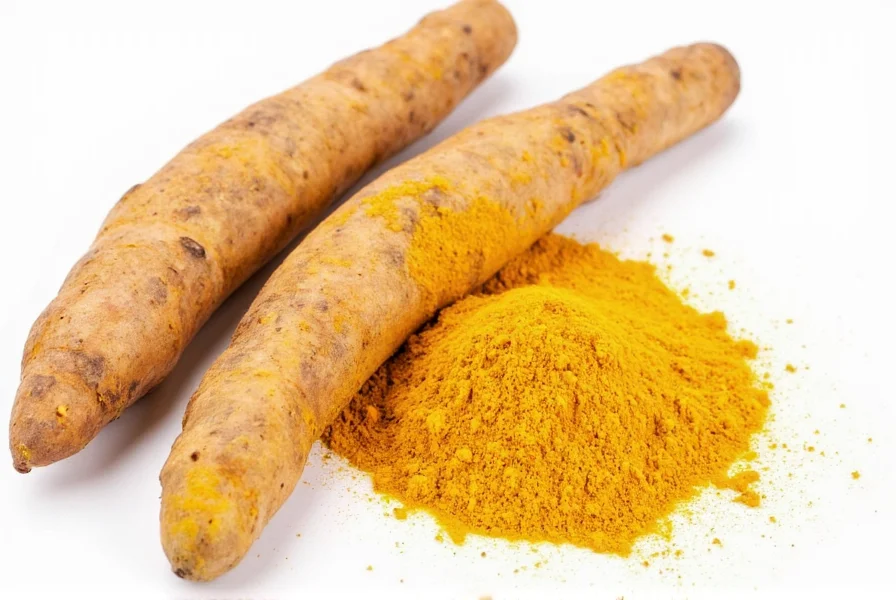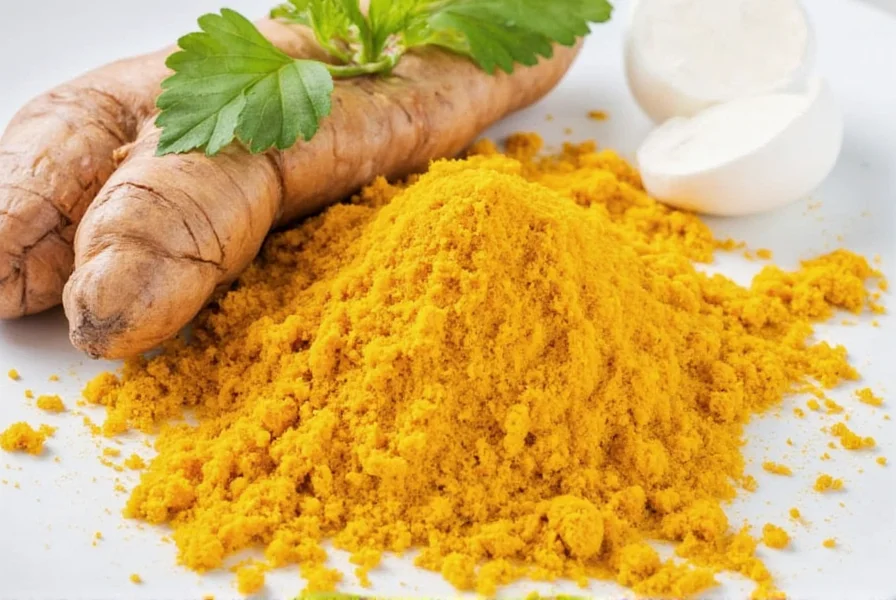Curcumin, the active compound in turmeric, has gained attention in weight management research. While preliminary studies show promising metabolic effects, it's crucial to understand turmeric's realistic role in weight management rather than viewing it as a miracle solution. This article examines the scientific evidence behind turmeric weight loss claims with balanced perspective.
The Science Behind Turmeric and Weight Management
Turmeric (Curcuma longa) is a bright yellow spice commonly used in Indian cuisine and traditional medicine. Its primary active component, curcumin, constitutes about 2-8% of turmeric and demonstrates potent anti-inflammatory and antioxidant properties. These properties form the basis for investigating turmeric weight loss potential.
Research suggests curcumin may influence several biological pathways related to weight management:
- Reducing inflammation in adipose (fat) tissue
- Modulating lipid metabolism
- Improving insulin sensitivity
- Potentially inhibiting fat tissue growth
A 2015 meta-analysis published in Nutrition Journal examined multiple studies on curcumin and weight management. The analysis found that curcumin supplementation was associated with modest reductions in body mass index (BMI), waist circumference, and body fat percentage compared to control groups. However, the researchers noted significant limitations in study quality and called for more rigorous research.
Current Research Evidence on Turmeric Weight Loss
Let's examine what current scientific literature actually says about turmeric for weight loss rather than popular claims:
| Study | Participants | Duration | Findings |
|---|---|---|---|
| Di Pierro et al. (2015) | 44 overweight adults | 8 weeks | Curcumin-phospholipid complex group showed 4.91% body fat reduction vs. control |
| Chuengsamarn et al. (2012) | 240 prediabetic adults | 9 months | Curcumin delayed onset of type 2 diabetes and improved beta-cell function |
| 彭 et al. (2016) | 113 obese adults | 30 days | Curcumin reduced body fat and increased weight loss compared to placebo |
These studies suggest potential metabolic benefits, but important limitations exist:
- Most studies are small-scale with limited participant numbers
- Many combine curcumin with other compounds (like piperine) to enhance absorption
- Results show modest effects, not dramatic weight loss
- Long-term effects remain largely unstudied
How Turmeric Might Support Weight Management
Rather than directly causing weight loss, curcumin appears to support metabolic health through several mechanisms relevant to weight management:
Anti-Inflammatory Effects
Chronic inflammation is associated with obesity and metabolic disorders. Curcumin's potent anti-inflammatory properties may help reduce inflammation in adipose tissue, potentially improving metabolic function. A 2013 study in Biofactors demonstrated curcumin's ability to suppress inflammatory markers like TNF-α and IL-6, which are elevated in obesity.
Impact on Fat Tissue
Research suggests curcumin may influence adipogenesis (fat cell formation). A 2016 review in European Review for Medical and Pharmacological Sciences indicated that curcumin might inhibit the growth of new fat cells and promote apoptosis (cell death) in existing fat cells.
Metabolic Regulation
Curcumin appears to influence several metabolic pathways, including those related to insulin sensitivity and lipid metabolism. Improved insulin sensitivity can help regulate blood sugar levels and potentially reduce fat storage.

Realistic Expectations for Turmeric Weight Loss
Despite promising research, it's essential to maintain realistic expectations about turmeric weight loss benefits:
- Not a standalone solution: Turmeric supplements won't produce significant weight loss without dietary changes and physical activity
- Modest effects: Studies show relatively small improvements in body composition metrics
- Bioavailability challenges: Curcumin has poor absorption; most effective formulations include absorption enhancers
- Timeframe: Any potential benefits would develop over months, not weeks
Registered dietitians and obesity specialists emphasize that sustainable weight management requires comprehensive lifestyle changes. As Dr. Sarah Mitchell, a nutrition researcher at Johns Hopkins University explains: "Curcumin shows interesting metabolic effects in laboratory settings, but translating these to meaningful human weight loss requires much more research. It should be viewed as a potential complementary approach, not a primary weight loss strategy."
Practical Usage Guidelines
If considering turmeric for metabolic health support, follow these evidence-based recommendations:
Dosage Considerations
Research studies typically use 500-2,000 mg of curcumin daily, often in divided doses. However, pure curcumin has low bioavailability. Most effective supplements combine curcumin with:
- Piperine (from black pepper) - increases absorption by up to 2,000%
- Lipids or phospholipids - enhances bioavailability
- Nanoparticle formulations - improves absorption
Natural Consumption Methods
You can incorporate turmeric into your diet through:
- Culinary use in curries, soups, and stews (1-3 grams daily)
- Golden milk (turmeric tea) with black pepper and healthy fats
- Smoothie additions with black pepper and coconut oil

Safety and Considerations
Turmeric is generally safe when consumed in culinary amounts. However, high-dose supplementation requires caution:
- Digestive issues: High doses may cause nausea or diarrhea in some individuals
- Blood thinning: Curcumin has mild anticoagulant properties; consult doctor if taking blood thinners
- Gallbladder concerns: May stimulate gallbladder contraction; avoid if you have gallstones
- Pregnancy: Culinary amounts are safe, but high-dose supplements should be avoided
The European Food Safety Authority considers up to 180 mg of curcumin daily safe for supplemental use. Always consult with a healthcare provider before starting any new supplement regimen, especially if you have underlying health conditions or take medications.
Conclusion: Turmeric's Role in Weight Management
Current scientific evidence suggests turmeric, specifically its curcumin component, may offer modest support for metabolic health and weight management through anti-inflammatory and metabolic regulation effects. However, it's not a magic solution for weight loss. The most effective approach combines evidence-based lifestyle changes with potentially supportive elements like turmeric.
View turmeric as one component of a comprehensive weight management strategy that prioritizes balanced nutrition, regular physical activity, adequate sleep, and stress management. While research continues to evolve, maintaining realistic expectations about turmeric weight loss benefits prevents disappointment and supports sustainable health outcomes.











 浙公网安备
33010002000092号
浙公网安备
33010002000092号 浙B2-20120091-4
浙B2-20120091-4